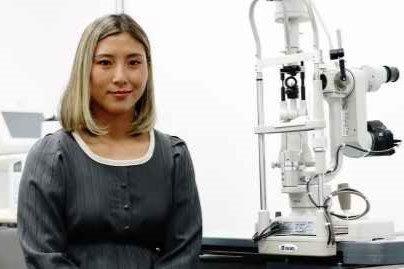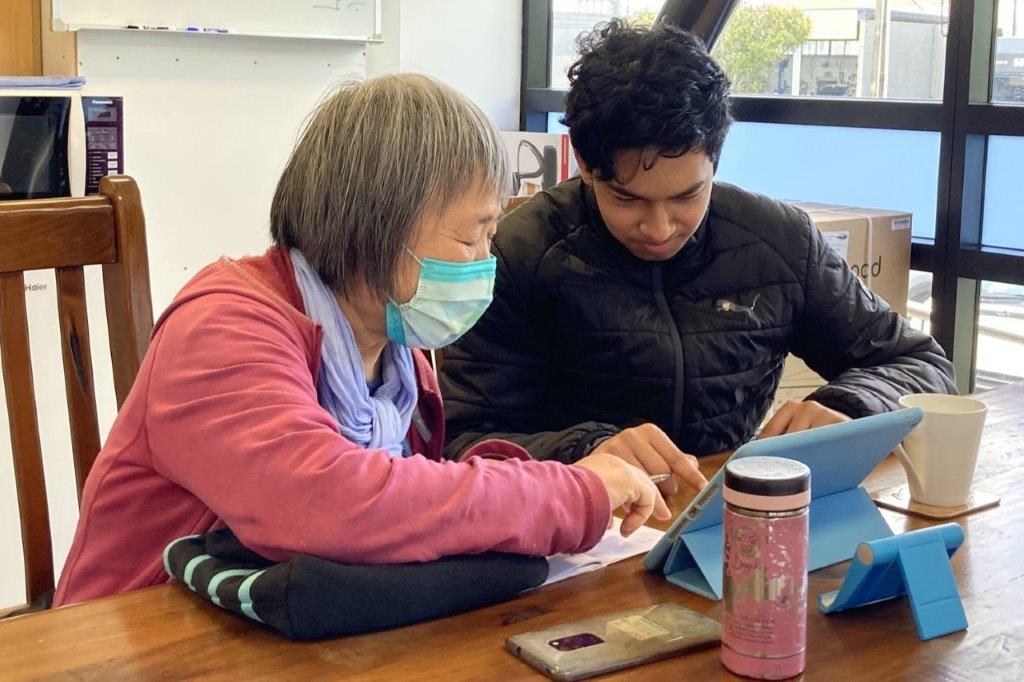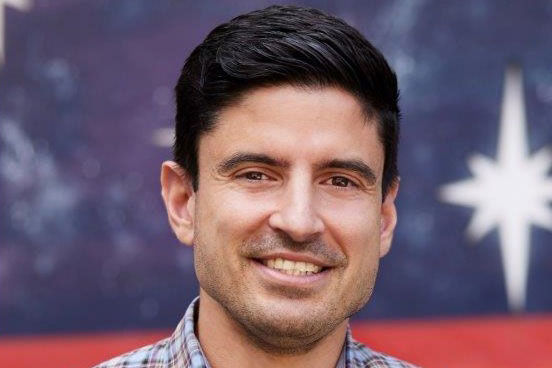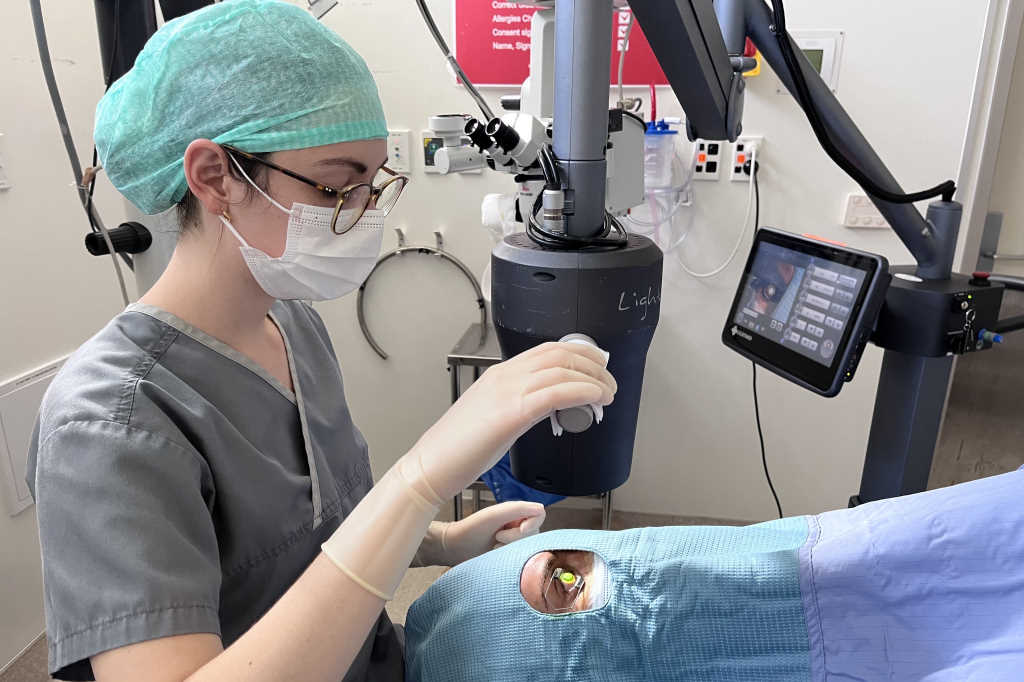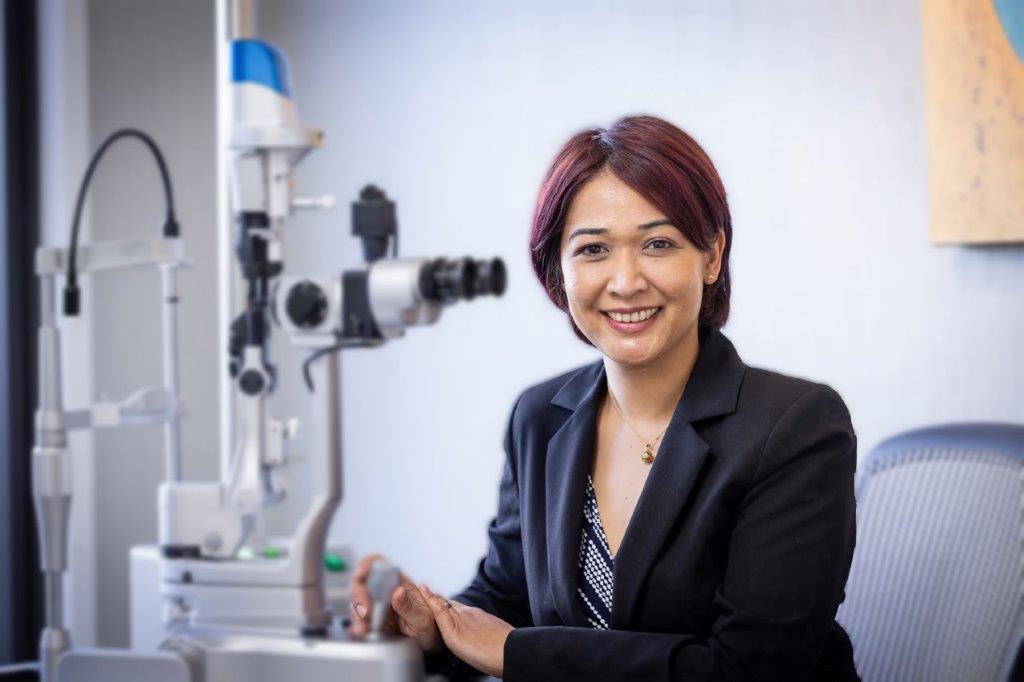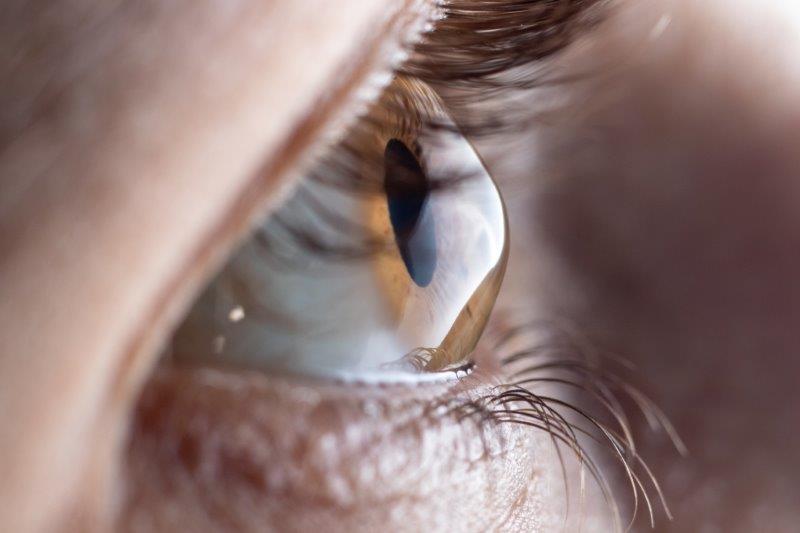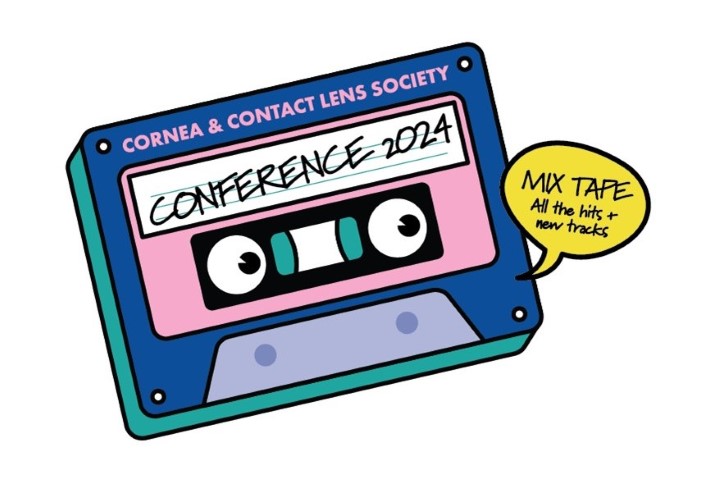Patients needed for castor oil study
Following the success of a University of Auckland-led pilot study examining castor oil as a treatment for dry eye disease (DED), university researchers are looking for 90-plus participants for a larger, more robust study.
The prospective, double-masked, randomised, placebo-controlled study is being led by Catherine Jennings and overseen by Professor Jennifer Craig from the Ocular Surface Laboratory in the Department of Ophthalmology.
The pilot study demonstrated that applying castor oil over four weeks to the eyelid skin using a rollerball applicator significantly reduced the symptoms of dry eye disease, said Jennings. “Signs of blepharitis were significantly improved in the treated eyes, compared to the non-treated eyes.” Blepharitis is the main cause of dry eye disease, accounting for more than 80% of all cases, she said. “It is considered to have no cure and the condition is chronic. Current management strategies have limitations such as being toxic to the ocular surface, or stinging on application, which largely affects compliance in daily self-management.”
The research team needs more than 90 mild-to-moderate dry eye patients who have not recently undertaken any major dry eye treatments, such as Lipiflow or IPL, and are able to travel to Auckland University for treatment once a week for six months. Ideally, they should have identifiable signs such as blepharitis or meibomian gland dysfunction, said Prof Craig. “All participants in the trial will get an eye exam, MTA vouchers and may get a helpful therapy at no cost, as well as contributing to understanding of the disease and treatments.”
Often patients are left feeling helpless when attempting to manage a chronic condition, said Jennings. “Castor oil has been proposed as a natural product, that could be used as a safe, effective, easy-to-use alternative to available therapies. I hope that through this study, we will be able to produce evidence-based guidance for clinicians to offer castor oil as a suitable management option for patients, so that they can continue to live a great quality of life.”
The trial is part-funded by TRG Natural Pharmaceuticals, which is providing the roller ball applicators containing castor oil, with additional costs covered by the university, said Prof Craig.
For more information and to enroll patients, visit: https://tinyurl.com/castor-study










